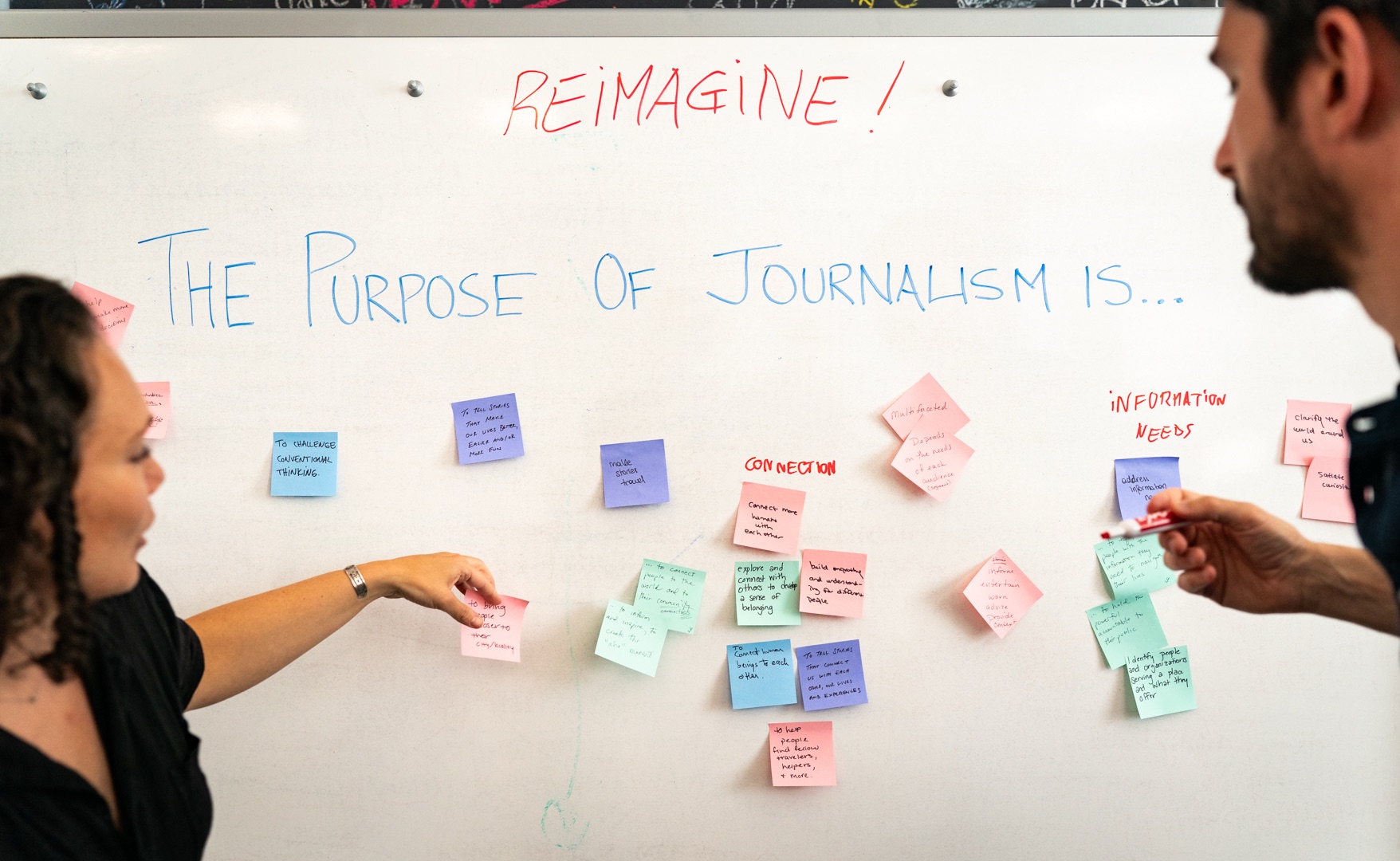
For the last two quarters, student fellows at the Knight Lab have been hosting Open Lab Hours each week. The atmosphere, conversations and community that have developed have been more than we have expected. Friendships were born, pizza was consumed, and, most importantly, new projects were pushed online.
The idea behind Open Lab Hours is simple: create a space for students interested in journalism and technology to gather and work on projects. All are welcome. Some students come with the most basic questions, like “What's the internet?”, while more advanced students come to debug projects, or hack on interactive and data stories for student publications.
The key has been to create a community for people who want to learn. With a safe space for beginners, rookies and advanced folks to work together, relationships are naturally formed between students with varying skill levels. These relationships help newbies learn while providing more advanced students with the capacity to teach and develop new project ideas.
Most nights at the Lab are unstructured — they’re just free time to work on projects and brainstorm with other people. But at some point during the evening, we try to have people share things that they have been working on. Students share anything from homework, to projects, to an idea they've been toying with. Sharing encourages people to work on projects over the week to show the community and also helps people come up with possible project ideas.
A few examples: a breaking bad jeopardy game, a SASS doggy and random name generator.

Since Open Lab Hours usually draw a crowd, we've also started doing short presentations and workshops. We've tackled Noah Veltman’s Command Line Murder Mystery and did a short presentation on “How to Conference” in preparation of NICAR for students who were first-time attendees These short workshops let us share skills or knowledge with each other and help us build the community. We maintain an Open Lab Hours wishlist to collect things students want to learn or share with each other.
Part of what makes the Open Lab hours great is that they help students work on individual projects and tackle roadblocks. Journalism sophomore Mallory Busch created a personal website based on one of our tutorials and with some help from the group debugging. Freshman Alex Duner created a restaurant guide for downtown Evanston that was published by North by Northwestern. Suyeon Son created five websites that helped her hone her basic javascript and python skills. While these students worked on their projects outside of Lab time, they benefited a lot from having people to go to every week. The communal space that encouraged learning and collaboration allowed room for them to test and fail before the final product came together.
We’ve seen these types communities pop up in cities and universities and we're grateful that we've been able to create one here for students to come together to learn and hack. There is the hard way to learn: through hours of trial and error and perusing forums and Q&As online. But having a community to get feedback from has proved to be tremendously helpful for folks who are just starting out and have no idea how to find errors and bugs. We don’t always have the time or resources to take a formal class, but communities are free and always friendly. So if you’re a budding journalist who wants to learn to code or a computer science geek who wants to find collaborators on media projects, start building your own community.
About the author





